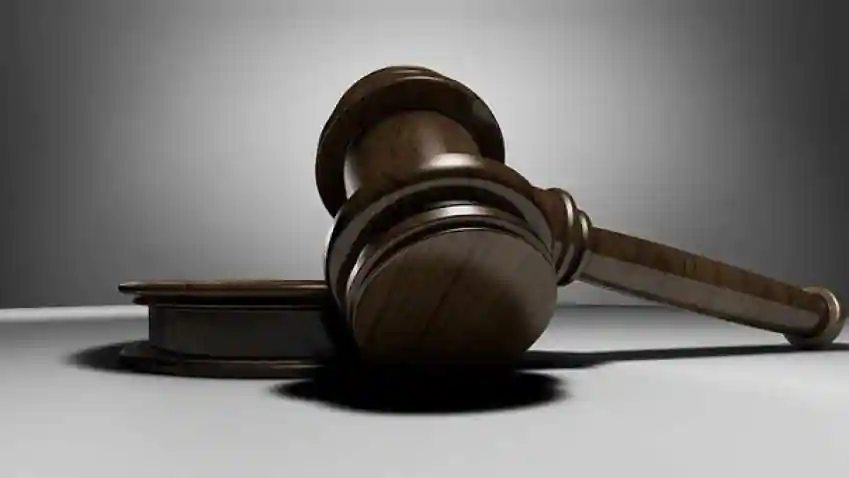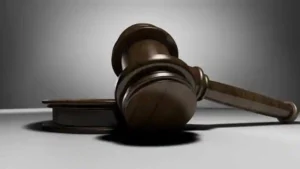MOHIET ANAND vs PARUL ANAND as on 1 February 2024, Delhi High Court
The Delhi High Court has ruled that a person cannot be sent to jail for more than three months, over non-payment of arrears of maintenance to the spouse, in the subsequent execution petitions filed for recovery of maintenance which may accrue from time to time under the same order. A division bench of Justice Suresh Kumar Kait and Justice Neena Bansal Krishna analyzed Section 58 (1) of the Code of Civil Procedure, 1908, and ruled that the total period in civil prison in execution of a decree in the same suit cannot exceed three months.
HC further quotes in several para of judgement are as follows :
The Delhi High Court has ruled that a person cannot be sent to jail for more than three months, over non-payment of arrears of maintenance to the spouse, in the subsequent execution petitions filed for recovery of maintenance which may accrue from time to time under the same order. A division bench of Justice Suresh Kumar Kait and Justice Neena Bansal Krishna analyzed Section 58 (1) of the Code of Civil Procedure, 1908, and ruled that the total period in civil prison in execution of a decree in the same suit cannot exceed three months.
Para 46. We thus conclude that it is the total period in civil prison in execution of the decree in the same suit, cannot exceed three months. Though the decree may be executed in instalments as in the case of maintenance orders, but the decree/order being only one, arrest can be made as prescribed, for a maximum period of three months. Though the execution petition may be filed for realization of the maintenance that may become due from time to time but that would not give a right to seek further imprisonment beyond the maximum period as prescribed by Section 58 (2) of the CPC. A person who has already having been sent to civil imprisonment for a period of three months, cannot be sent to civil prison again in execution of the same decree for a second time. Further, merely because the judgement debtor had been detained in civil prison for the full term of three months as provided under Section 58 (2) of the CPC, his debt cannot be said to be discharged, which can still be recovered through other means as provided in the section.
Para 47. In the present case, in Execution Petition bearing No. 27/2018 filed by the respondent of Order dated 28.09.2015, the appellant/husband has already been sent for the period of three months, to civil imprisonment on 24.02.2021 which was served by him. As the respondent has again filed an Execution Petition bearing No. 11/2020 of the same Order dated 28.09.2015, the appellant cannot be directed to civil imprisonment again in execution of the same decree for arrears of maintenance that have subsequently become due.
Civil Imprisonment under S.125 Code of Criminal Procedure:
Para 48. The appellant/husband has rightly contented that he could have been repeatedly sent to jail but that that would only be permissible in execution of the Order of Maintenance granted under Section 125 of Code of Criminal Procedure, 1973 (hereinafter referred to as “Cr.P.C., 1973”). 49. Section 125 (3) of Cr.P.C., 1973 reads as under: –
―Section 125 (3): –– (3) If any person so ordered fails without sufficient cause to comply with the order, any such Magistrate may, for every breach of the order, issue a warrant for levying the amount due in the manner provided for levying fines, and may sentence such person, for the whole or any part of each month [allowance for the maintenance or the interim maintenance and expenses of proceeding, as the case may be,] remaining unpaid after the execution of the warrant, to imprisonment for a term which may extend to one month or until payment if sooner made:
Provided that no warrant shall be issued for the recovery of any amount due under this section unless application be made to the Court to levy such amount within a period of one year from the date on which it became due:
Provided further that if such person offers to maintain his wife on condition of her living with him, and she refuses to live with him, such Magistrate may consider any grounds of refusal stated by her, and may make an order under this section notwithstanding such offer, if he is satisfied that there is just ground for so doing.
Para 50. From the bare perusal of the aforesaid section, it is evident that for a default of every month in payment of maintenance, the defaulter can be sent to one month imprisonment. Therefore, for every month, the defaulter is liable to be sent to one month imprisonment.
Para 51. The stark distinction between execution proceedings for an Order under Section 125 CrPC and Section 24 HMA, is evident from the language used in the relevant sections. The present Order being under Section 24 HMA, the Execution Petition is governed by the provisions of CPC, 1908 which does not provide for re-arrest once the person has undergone the maximum period of three months of civil imprisonment.
Para 52. We, therefore, find that impugned Order of detention of the appellant/husband sentencing him to undergo civil imprisonment for another period three months in compliance of the same maintenance Decree is not justified. The impugned Order dated 30.09.2022 is hereby set aside.
Para 53. Before we part with this Judgment, it is noted in Order dated 30.09.2022 passed at 3.30 PM by the learned Judge, Family Court that learned counsel for JD appeared with Demand Draft of Rs.2 lacs in the name of DH and submitted that order taking the JD into custody be suspended till they approach the High Court with respect to clarification regarding the position of law about civil imprisonment in the case of monthly maintenance granted to DH. Learned Judge is not a layman, he is duty bound to know the position of law, and, there was no necessity to record said submission of learned counsel for JD. As the learned Judge has suspended order of taking JD in custody on taking Demand Draft of Rs. 2 Lacs in favour of DH and a separate undertaking of the JD was also recorded to appear on the next date of hearing, we refrain from commenting much.


